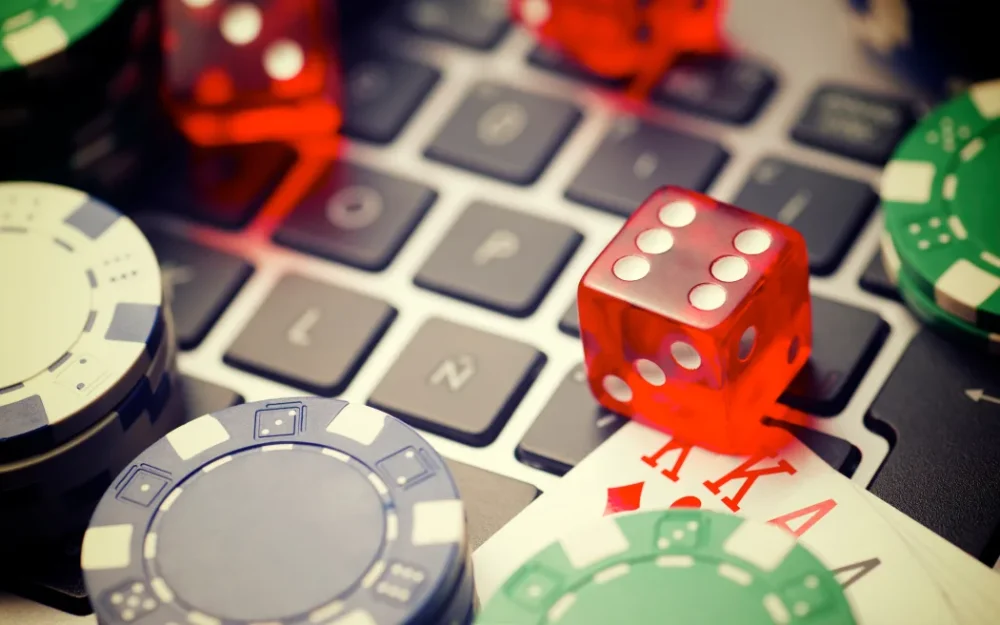Gambling has accompanied humanity since ancient times. Along with the growth of casinos, the expansion of slot machine choices, and the complexity of bets, a whole cultural phenomenon has taken root – superstitions in gambling. Players believe in the magic of certain numbers, rituals before bets, “charged” items, and actions. Beliefs form a whole layer of informal psychology, integrating into the gaming environment alongside probability mathematics and financial strategies. Understanding which superstitions in gambling are considered lucky, which are dangerous, and how they influence players’ thinking means understanding the essence of many decisions at the gaming table or in front of a slot machine.
Behavioral Rituals and Their Role in the Gaming Environment
Before starting the game, most casino regulars perform simple but significant actions: checking their bankroll three times, inspecting their clothes for “luck,” touching chips, stroking a card or dice. Rituals have become a true reflection of how deeply superstitions in gambling penetrate behavior.

Automatism in Actions
Superstitions in gambling often trigger the effect of automatic confidence. The player shifts the responsibility for the outcome to an external factor – an amulet, a coin, a ritual. This creates an illusion of control, reducing anxiety. Such belief enhances internal concentration, creating a “flow” effect, shifting the focus from defeat to confidence in the process.
Psychophysiological Factor
Repeating the same ritual before each game is a powerful anchor for the brain. Stability reduces cortisol, stimulates dopamine, improves memory, and reaction speed. Therefore, superstitions in gambling are not just a myth but also a tool for creating a favorable psychophysiological state before a crucial bet.
Lucky Superstitions in Gambling Among Players
What superstitions in gambling are considered favorable:
- Entering the casino on an even day of the week brings luck.
- Wearing red clothing enhances luck, especially when betting on roulette.
- A talisman in the form of a horseshoe, clover, or coin increases the chances of winning.
- The left pocket is considered “money” – chips are placed there before the game.
- Changing slots after three consecutive losses promises a quick victory.
- It is better to make the first bet with the left hand – according to superstition, the right hand “gives away.”
- Approaching the table after another player’s win takes part of their luck.
- Mentally addressing Fortune before throwing a card or dice brings favor.
- Looking at the clock with the minute hand pointing up before a bet promises victory.
- It is advisable to take the first bill for the deposit from a wallet with a new bill – fresh money energy.
Each belief strengthens psychological stability, gives a sense of “being included” in luck, and creates an illusion of playing out a familiar scenario.
Superstitions and Taboos: What Professionals Fear
Superstitions in gambling include not only rituals for luck but also a whole set of taboos interpreted as signals of loss. Avoiding these actions is considered mandatory for an experienced player, especially during a series of bets.
Behavioral Restrictions
Avoiding eye contact with the dealer before the deal, refraining from saying “luck” and “win” out loud, and not discussing future bets with others have become part of the non-verbal gaming etiquette code. Such superstitions in gambling arise from observations of repeated losses after certain phrases or actions.
Object Superstitions
A black wallet is interpreted as a sign of “absorbing the bankroll.” An empty glass of water next to a slot is considered a sign of luck draining away. A coin falling on the floor before starting bets foretells losses. All this illustrates how superstitions in gambling become associated with physical objects.
Talismans and Amulets: Material Symbols of Luck
Many players bring small items with them endowed with magical significance. These items do not serve a functional purpose but play a key role in confidence. Superstitions in gambling attach the status of a personal source of luck to talismans.
Common Symbols
Players most often use the following types of talismans:
- a figurine of Fortune in the form of a miniature woman with a coin;
- a green crystal (a symbol of financial flow);
- a card with a birthdate in the wallet;
- a bird feather – a symbol of ease and effortless winnings;
- a dice with a six facing up, placed in the shoe.
Each talisman forms a unique connection between the player and the expectation of success. Symbols enhance personal involvement, shift focus from mathematical calculation to visual thinking, which is more important at moments of intuitive decisions.
Superstitions in Gambling: Unobvious Strategies in Space
Position at the table, distance to the exit, even the direction of gaze – all of this also falls under the influence of superstitions. Players use superstitions in gambling to choose not only a bet but also a place in the room, counting on spatial energy.
Participants sit with their backs to the door to “retain luck.” The right half of the roulette is considered more “clean.” Placing the wallet to the left of the knees is interpreted as a sign of balance between profit and risk. Even the distance to other players’ chips can be perceived as a sign of foreign energy capable of influencing the outcome.
Influence of Culture and History on Gaming Superstition
Superstitions in gambling among different peoples have been shaped by religions, folklore, political history, and local traditions. For example, in Asia, the number 8 is considered a harbinger of wealth, while in Western countries, the number 13 is avoided.
French players attach importance to the first chip served – it must be received from a man. In Latin America, laughing during a bet is prohibited – such laughter “dispels” luck. In the USA, there is a common superstition associated with the Liberty coin, which many carry in their wallets, believing it enhances the chance of winning on slots.
Micro-Psychology of Bets: How Confidence Is Formed
A player’s psychology often builds on accumulated rituals and symbols. Any preceding behavior that coincided with a win turns into a future strategy. Superstitions in gambling become a tool for building a personal confidence system.
A player memorizes a sequence of successful actions: arriving at the same time, choosing a specific slot, pressing the button at a certain song in the room. This model is established as “proven,” even in the absence of real connections. It helps reduce stress, increase the perception of control, and create a sense of cyclicality – a crucial psychological effect in gambling.
Superstitions as a Way of Transferring Responsibility
When a player does not win, the habit of attributing it to a ritual violation or the influence of a negative superstition reduces the level of guilt. Superstitions in gambling create a structure into which defeat can easily be integrated without psychological damage.
A player blaming failure on spilled water, an unlucky date, or a handshake before the game unburdens themselves internally. This approach softens the perception of loss, reduces stress levels, and allows for a quicker return to the game with a “cleansed” state.
Emotional Reinforcement
Each coincidence of a ritual with a win reinforces belief. The player interprets luck as confirmation of correct behavior. This creates a powerful reinforcement cycle – superstitions in gambling begin to be perceived as a real tool for influencing outcomes.

The brain establishes a connection between action and result – and each successful result strengthens the ritual. Even one win while following a superstition creates a stable neural pathway, and the player will continue to seek that behavior. Superstitions are reinforced through a dopamine response, comparable to the effect of a real system.
A Phenomenon That Cannot Be Ignored
Superstitions in gambling have formed a full-fledged parallel perception system within the industry. They act on the level of behavior, perception, memory, and emotions. Superstitions help players feel more confident, shape their gaming style, and even create micro-communities of interest. Ignoring their influence means missing a key aspect of psychology.
 en
en  ru
ru  de
de  ar
ar  es
es  nl
nl  fr
fr  it
it  pt
pt  hi
hi  el
el 









